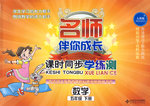题目内容
—Dou you feel like there or shall we take a bus?
—I'd like to walk. But since there isn't much time left, I'd rather you a taxi.
A. walking; hiring B. to walk; hire
C. to walk; hired D. walking; hired
练习册系列答案
 名师伴你成长课时同步学练测系列答案
名师伴你成长课时同步学练测系列答案
相关题目


 about what construction to use, you begin to stammer, stop sounding natural. Your responses should become automatic to master the language, so instead of studying theory – take more practice! When you speak, you don't have time for considering what tense is appropriate, one hundred percent correct. 2. Grammar is important in writing, not in speaking.
about what construction to use, you begin to stammer, stop sounding natural. Your responses should become automatic to master the language, so instead of studying theory – take more practice! When you speak, you don't have time for considering what tense is appropriate, one hundred percent correct. 2. Grammar is important in writing, not in speaking.